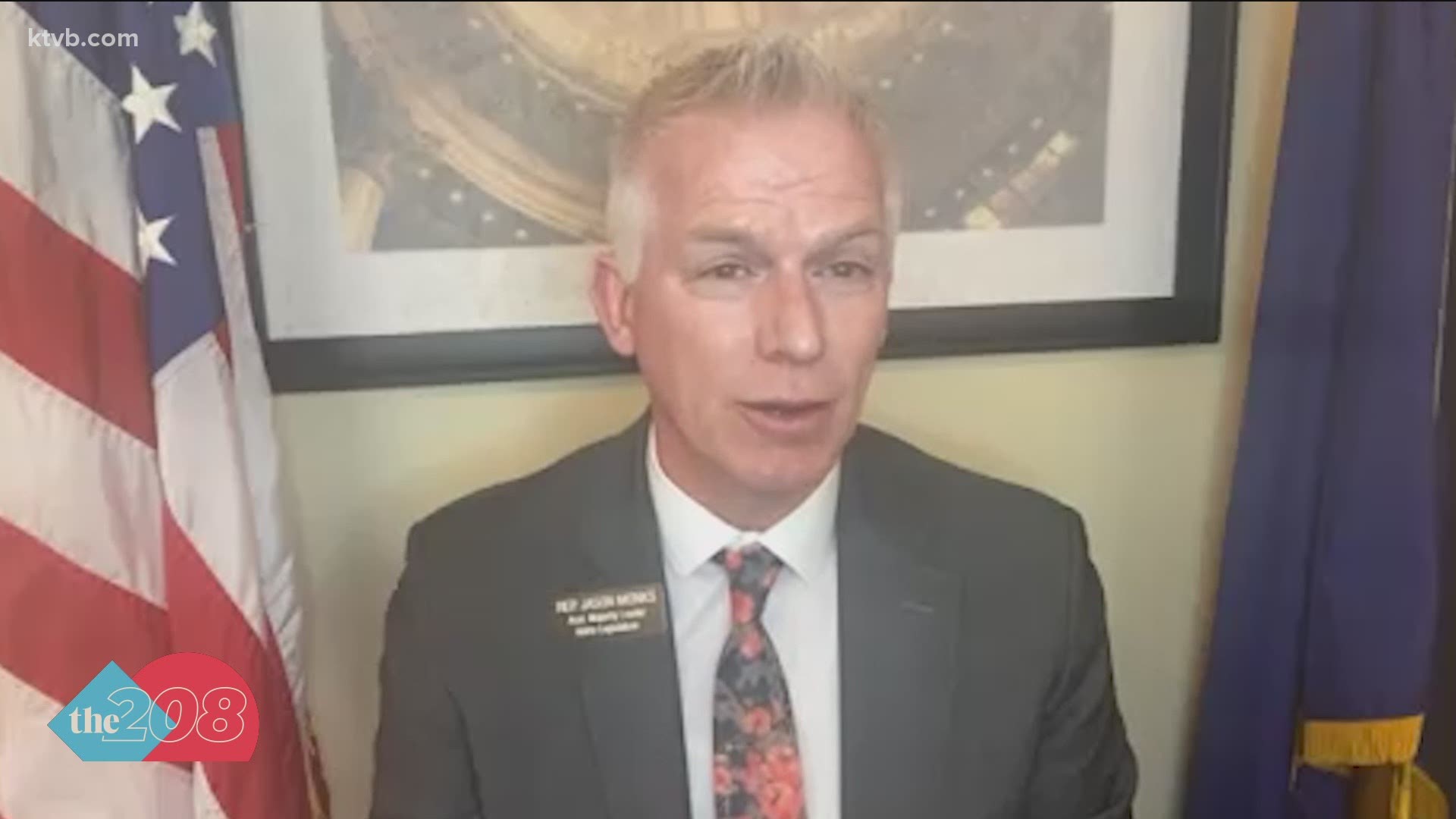BOISE, Idaho — The House has approved Senate changes to House Bill 135, a bill trimming an Idaho governor’s powers during declared emergencies while increasing the Legislature’s power.
Lawmakers voted 52-15 on Thursday to approve two modest changes to the bill made in the Senate.
Lawmakers are taking aim at rules intended to stem the pandemic, like limiting gatherings and nonessential travel, as well as a governor’s authority during localized natural disasters such as wildfires and floods.
Gov. Brad Little announced Friday afternoon that he will veto HB 135 and Senate Bill 1136, another bill targeting the governor's authority. Little stated the bills proposed by the legislature are an "emotional response" to his actions during the COVID-19 pandemic.
Another bill already sent to the governor targets a governor’s emergency powers during human-made events, such as a terrorist attack.
Since day one of the 2021 legislative session, Idaho lawmakers have worked on legislation that they believe will better balance government powers during a state of emergency. There has been a number of attempts at crafting successful legislation, and now, Republicans believe they have that in House Bill 135.
"I think this is a much better bill," Assistant Majority Leader Rep. Jason Monks (R-Meridian) said. "The language is clearer and I think it addresses all situations as opposed to just looking at it in a kind of myopic view, which we were looking at a little bit more at the beginning of the year than we are at the end of the year."
Monks believes the bill evenly distributes emergency powers. For example, the bill states the governor can only declare a state of emergency for 60 days, and extensions can only be made by lawmakers.
There is a provision, however, that allows the emergency to continue only to allow Idaho to receive federal aid. The bill also includes provisions about which jobs would be considered "essential" in an emergency.
"If you go through it, it identifies that all jobs are essential," Monks said. "That there is not any classification of jobs that are not essential. That was something we put in here."
House and Senate Republicans originally introduced power-limiting bills that were "very aggressive" and would have ended the current emergency declaration, according to House Minority Leader Rep. Illana Rubel (D-Boise).
Despite the amendments, Rubel still has concerns that HB 135 takes too much power away from the executive branch.
"Our constitution divides up particular powers," she said. "The governor has the executive power and the power to act in emergencies. I don't think we need to rejigger everything to allocate those powers to the legislative branch."
The legislation also examines the governor's power to unilaterally alter Idaho codes and laws during an extreme emergency.
"We ensure that the governor can't change laws just because there is an emergency declaration," Monks said. "That's a power that is designated to the legislative branch and we want to make sure that is maintained and stays in place."
Critics of the legislation feel the current law allowed Little to make necessary changes quickly.
"There were some things that the governor did that were really instrumental," Rubel said. "One of the things he did was to loosen some of the licensing requirements, for example, so that a lot of retired healthcare givers and nurses were able to come back online. That enabled us to have access to hundreds and hundreds of healthcare providers."
Join 'The 208' conversation:
- Text us at (208) 321-5614
- E-mail us at the208@ktvb.com
- Join our The 208 Facebook group: https://www.facebook.com/groups/the208KTVB/
- Follow us on Twitter: @the208KTVB or tweet #the208 and #SoIdaho
- Follow us on Instagram: @the208KTVB
- Bookmark our landing page: /the-208
- And we also turn each episode into a podcast or Podbean
- Still reading this list? We're on YouTube, too:

